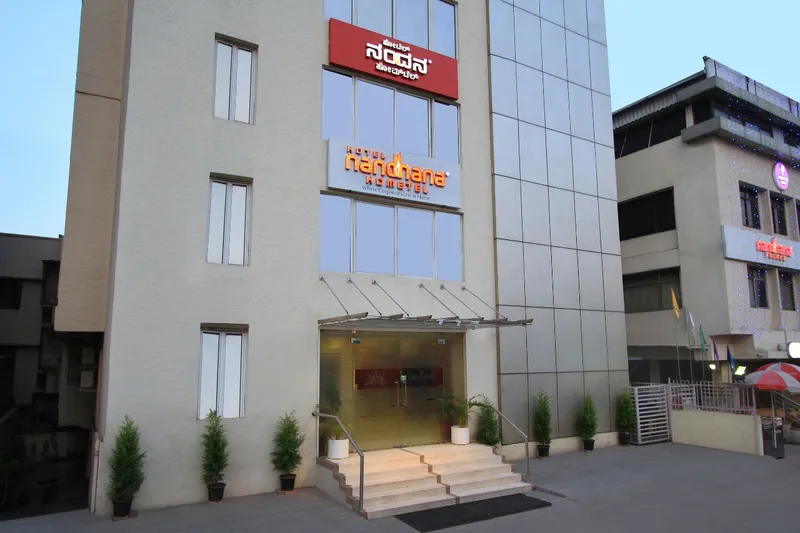How R Ravichandar found his calling in the food industry and launched Nandhana
When Dr R Ravichandar came to Bengaluru in 1979, little did he know that a job at a restaurant will shape the journey of his life and help him find his ikigai—that of becoming an entrepreneur.
Dr R Ravichandar came to Bengaluru in 1979 to study. He had left his hometown—a small district called Sholinghur, near Chittoor, Andhra Pradesh—in hopes of making it big in the city.
After completing his education, Ravichandar did odd jobs for a few years including that of a bank clerk. However, he wasn’t satisfied with the pace at which life was moving and wanted to try something else.
This hunger (pun not intended) led him to take up a job as a manager at a restaurant called Kanishka in 1983. Ravichandar’s stint at Kanishka proved to be a game-changing one and is also responsible for building the foundation for his success in the industry.
While closely watching the day-to-day workings of the outlet, he developed a passion for food and entrepreneurship. Soon, he realised that becoming a food entrepreneur was his ikigai—a Japanese concept for one’s reason for being.
He quit his job in 1987 and decided to launch a venture with four of his friends. Together, they invested Rs 6 lakh to open a restaurant called Suhasini. The restaurant was launched with great gusto but failed to set the cash registers ringing. The lukewarm response scared the other four investors.
“The partners were not ready to invest more money,” he says.
A year later in 1988, Ravichandar hit rock bottom when the restaurant had to be finally shut down. “One of those days, I was feeling very low and so I went to watch a movie at the Pallavi Theater.”
The movie was Manathil Uruthi Vendum. Ravichandar says that the character of Suhasini— who is a nurse, a divorcee, and the sole breadwinner for her family—inspired him to pursue his passion. The movie traces her journey of how she navigates through various struggles for the sake of her kin.
“Suhasini’s character inspired me a lot. I told myself that I cannot give up. I need to believe in myself and move forward for myself and my family.”
It seemed like the dust had finally settled as Ravichandar got ready to kick-start the second innings of his entrepreneurial journey. At that moment, he didn’t anticipate the kind of success this venture would be.

Entrepreneurship 2.0
Ravichandar says that the main idea behind starting his second venture, then called Nandini, was to bring authentic Andhra Pradesh cuisine to Bengaluru. He opened the first outlet in the locality Rajajinagar and then opened two more outlets in Koramangala and Indiranagar between 1989 and 1997.
In 1997, he changed the name of the company from Nandini to Nandhana which means ‘daughter’ in Sanskrit. This was an ode to his daughters, Shwetha and Ramya Ravi, both of whom play an active role in business today.
The Nandhana outlets became famous for their authentic Andhra dishes, including Chicken Kshatriya, Sholay Kebab, Bamboo Chicken, Carrot 65, and more. From three, the number of outlets grew to 23; of which 22 are located in Bengaluru and one in Chennai.
Nandhana has held its ground despite competition from restaurants such as Nagarjuna, Empire Restaurant, Shiro, Koshy’s, and more. He also adds that it typically takes two or three years for the business in each outlet to break even.
In 2006, Ravichandar expanded the group when he sensed an opportunity in the hotel's space. “We saw a trend of people traveling a lot for business.” This gave birth to the Group’s hotels segment.
Each hotel, he explains, has about 260 rooms and the cost ranges between Rs 3,000- Rs 5,000. They focussed on the people traveling for work as their target customers.
Overcoming the pandemic
The hospitality industry hit a rough patch when the COVID-19 pandemic struck India.
It was a very stressful time, recalls Ravichandar, adding that the business from the restaurants took a hit of almost 70 percent in FY21. He further adds that online deliveries saved it that year. “We partnered with Swiggy and Zomato which helped in contributing about 30 percent of the revenue.”
The company which clocked Rs 91 crore in FY20 came down to Rs 68 crore in FY21. Its profits also plummeted from Rs 2 crore to Rs 54 lakh in those two years.
Since online was the only mode of doing business, it helped the company pay the staff and take care of some of the rental expenses as well.
Today, while COVID-19 is still around, the anxiety around social distancing has reduced. Ravichandar says that it is looking forward to this year and plans to open five more stores across Bengaluru and Chennai.
Additionally, just before the pandemic, it was on the brink of touching Rs 100 crore. So, when asked what his plans are for the next 12-18 months, he quips, “Reach Rs 100 crore in revenue.”
Edited by Affirunisa Kankudti









